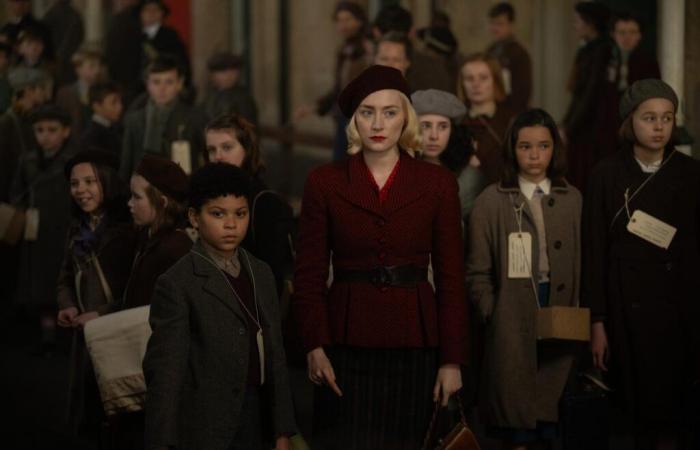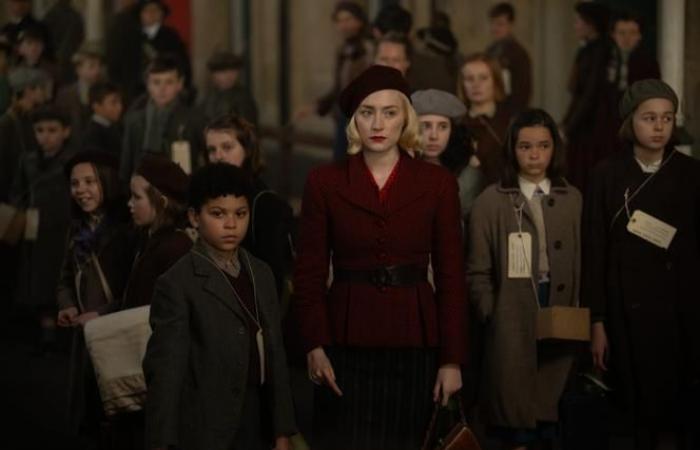In a city on fire, firefighters try to put out the blaze. The rush of water under pressure knocks out the man on the front line. The pipe turns into an uncontrollable reptile, the flames continue to devour the buildings, the men move around in a ridiculous choreography. Later, once the first effects of the shock caused by the vision of Blitz, a strange association comes to mind: Steve McQueen opened his evocation of the attempted destruction of London by Nazi Germany with a quote from the first fiction film in the history of cinema. This first sequence is a tragic and cruel remake of The sprinkler watered, by the Lumières brothers (1895).
Read also | Article reserved for our subscribers Steve McQueen, filmmaker: “We were fighting against the Nazis, and against ourselves”
Read later
Weaving together the reality of the world and the history of cinema, the video and visual artist turned director makes Blitz a rare work: a fiction whose classic plot – a child tries to find his mother in a country at war – is woven with images, situations, staging ideas which force us to think – about bombs and people on whom they fall, yesterday and today, to the power of fiction and its limits – without hindering emotion and sensation.
It is September 1940, every night the Nazi Luftwaffe rains bombs on London. Docks, factories, densely populated neighborhoods make the East End a target. Rita (Saoirse Ronan) and her 9-year-old son George (Elliott Heffernan) live there, in Stepney, in a small house that they share with Rita's father, Gerald (Paul Weller, the musician). A worker in a munitions factory, the young woman decides to send her son out of London.
Social divisions
George is mixed race (the idea for the film came to Steve McQueen when he discovered the photo of a black child evacuated from London during the Blitz), he cannot bear the prospect of being deprived of maternal protection, of being exposed to universal racism which causes him to be insulted daily by his playmates and which, in the past, led to the expulsion of his father, originally from Grenada. In the countryside, George jumps off the train to go home. At first unaware of her son's escape, Rita is for a moment the heroine of a chronicle of working-class life, filmed in the style of Soviet cinema, before rushing into a desperate quest to find the child. .
Portrait of an old town on fire, Blitz depicts as few films have done the persistence of social divisions in times of war. Racism, first of all, which irrigates the entire city with its poison, including in places where only white people are found. The judicious use of flashbacks gives an idea of George's origins, of the injustice done to his father. Nor did the war, contrary to what speeches of national unity would have us believe, bridge the gap between classes.
You have 38.88% of this article left to read. The rest is reserved for subscribers.







